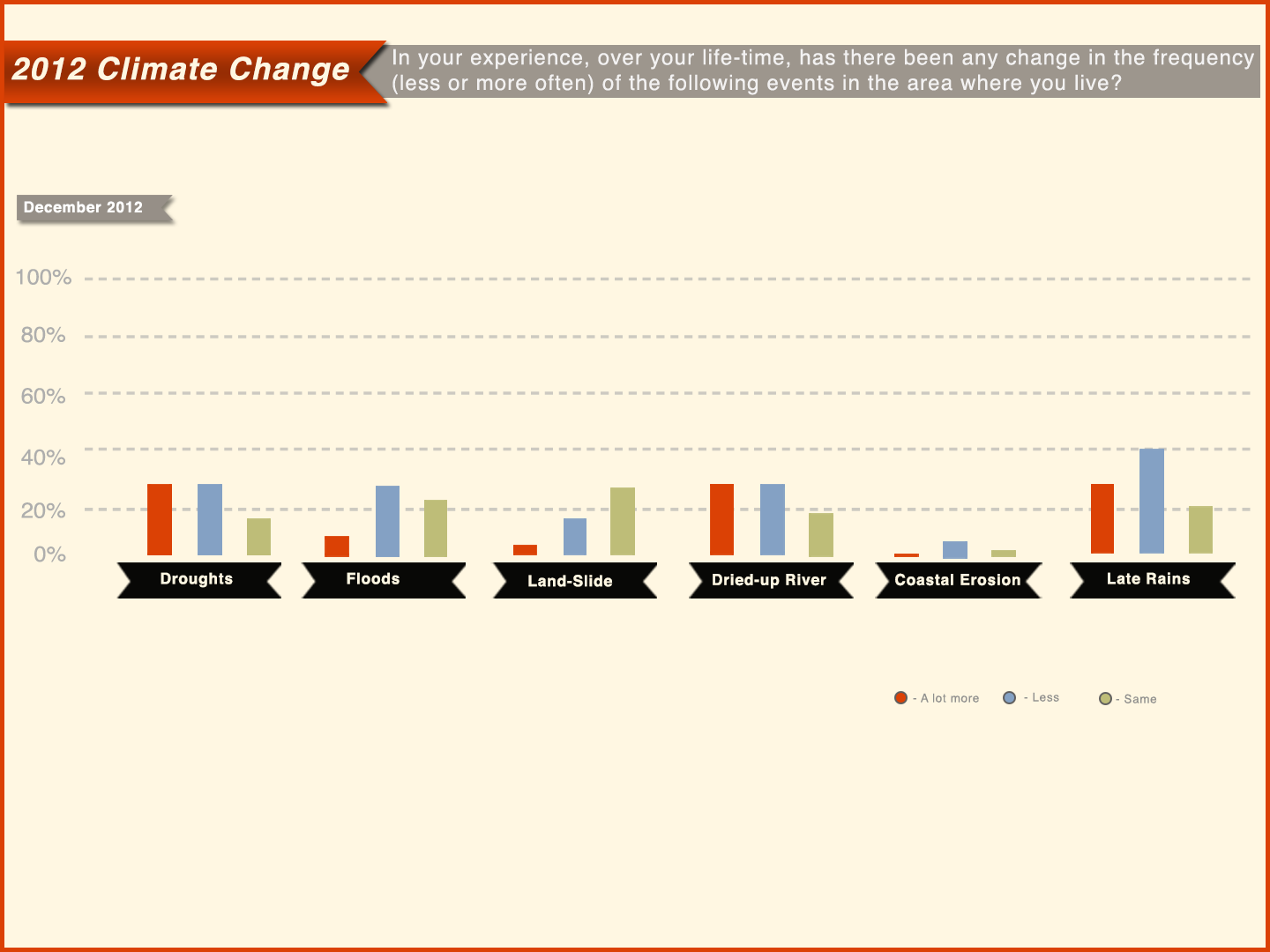Project : Understanding public perceptions on climate change in Kenya
Project : Understanding public perceptions on climate change in Kenya
Little is known about how citizens perceive and understand climate change, in Kenya and elsewhere in Africa. However, establishing ordinary people’s observations and opinions can help policy makers understand their daily experiences of climate change and establish their greatest needs. More must be known about what those most affected by climate change are doing to respond in order to support this action. By improving understanding of what the public thinks and believes about climate change, public awareness programmes can be better tailored to ensure people are provided with information they need.
[caption id="attachment_45758" align="alignleft" width="300"] The above info graphic shows some of the results from the research conducted by the Institute of Development Studies (IDS) in the University of Nairobi in September 2012.[/caption]
The above info graphic shows some of the results from the research conducted by the Institute of Development Studies (IDS) in the University of Nairobi in September 2012.[/caption]
This project aimed to help strengthen public awareness of climate change in Kenya through surveying ordinary Kenyans about their views and reflections of climate change in the country. More than 2,500 Kenyan households and 18 focus groups shared their views. Awareness was also raised on Kenya's Climate Change Action Plan (NCCAP), with a view to building public demand and strengthening civil society and private sector capacity to engage with government on Kenya's climate change agenda.
Kenya’s NCCAP was launched in March 2013 following months of analysis and consultations. It addresses the options for a low-carbon climate resilient development pathway as Kenya adapts to climate impacts and mitigates growing emissions. The plan also addresses the enabling aspects of finance, policy and legislation, knowledge management, capacity development, technology requirements and monitoring and reporting. Data was collected from rural and urban households over three years using the same questions and was released in a series of three events to the media, civil society, and policymakers and public officials.
Some initial results from the survey can be found here.
This project was facilitated by the Institute of Development Studies at the University of Nairobi (IDS) and the Green Africa Foundation.
Funding: £27,900
Timeframe: January 2013- November 2014
